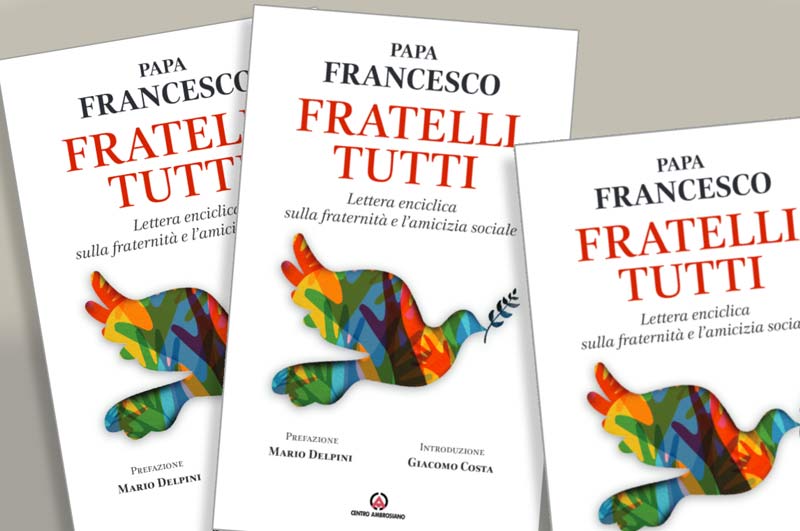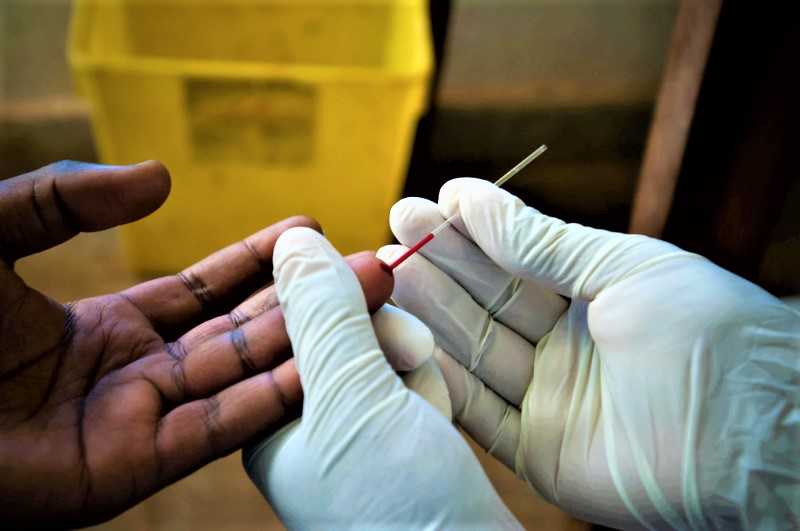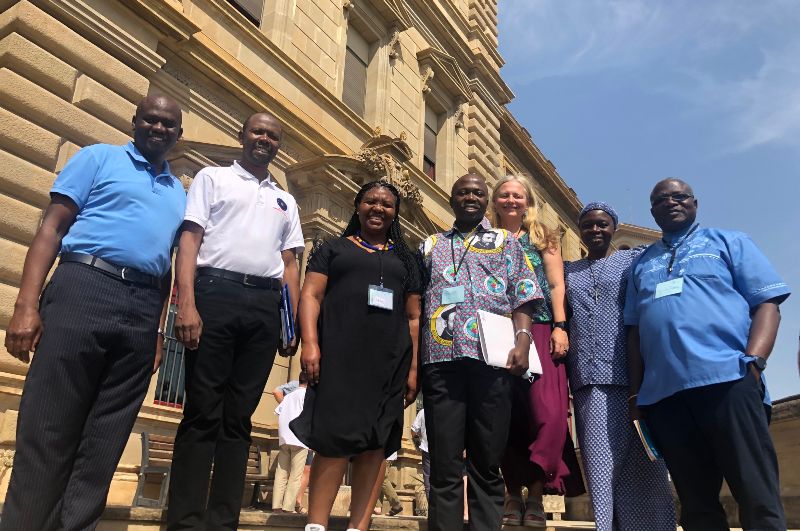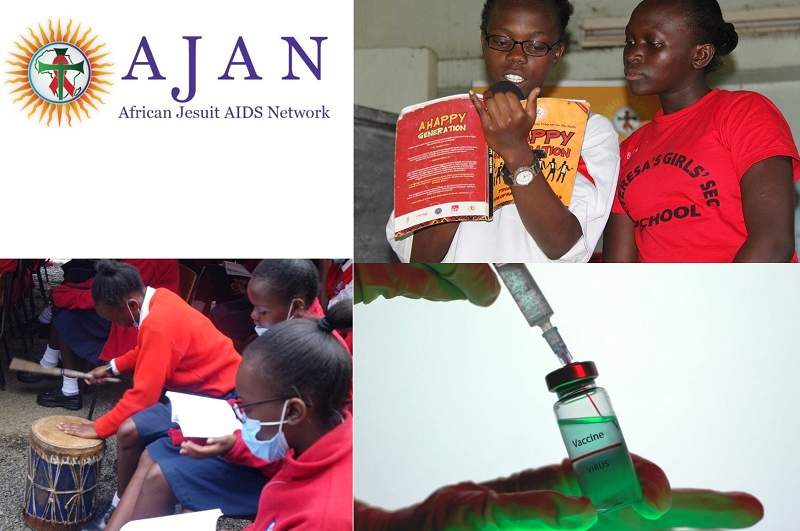


Fr. Agbonkhianmeghe E. Orobator, SJ, the President of the Jesuit Conference of Africa and Madagascar (JCAM) in an interview with Caleb Mwamisi, AJAN Communications and Research Officer, speaks about the upcoming African Jesuit AIDS Network (AJAN) assembly slated for 4-6th February 2021, and his vision for the network.
Caleb: You sit on the Board of Directors of AJAN. What challenges have you seen in AJAN fulfilling its mission?
Fr. Orobator: I believe that AJAN has been doing its best to fulfill its mission despite some obvious challenges. AJAN is undergoing a period of transition and the challenge is how to adapt to changes brought about by an evolution in the HIV situation in Africa and across the world. Resources have dwindled because the focus has shifted to other global challenges. There is an erroneous perception that HIV and AIDS have been overcome, but they remain a threat.
Caleb: What is expected of AJAN over the long term?
Fr. Orobator: The organization should remain flexible to adapt to changing times, contexts and circumstances. AJAN works to help the youth who are a significant demographic in Africa, accounting for about 60% of the total population. Therefore, it must put the youth at the forefront of its activities and programmes. The youth must be bearers of the message of prevention against HIV. AJAN must make them the ambassadors of the change we hope to see. They need to be the first beneficiaries of the work of AJAN in programmes such as AJAN HIV & AIDS Prevention Program for Youth. AJAN should focus mostly on empowering the African youth.
Caleb: Should AJAN limit its work to those within the broader Jesuit Network?
Fr. Orobator: The focus should not be limited to social centers, AJAN should be able to reach as many people as possible in the African society. It has a role to play in keeping the spotlight on HIV and AIDS.
Caleb: What can you say about COVID-19, and HIV and AIDS?
Fr. Orobator: People living with HIV and AIDS and their families have been affected negatively by COVID-19. Firstly, because they are vulnerable to the new virus owing to weakened immunity. Secondly, dealing with COVID-19 means diminished resources for HIV and AIDS. Attention has been deflected from HIV and there is as a result less commitment.
Caleb: AJAN also has a role in ongoing HIV/AIDS research. What can you say about this?
Fr. Orobator: AJAN has been good at undertaking research. Research is an important tool for advocacy. It enables people to make policy changes. However, the results of research are only useful when published and disseminated to people involved in advocating for the necessary interventions and changes. This is something that AJAN needs to improve on.
Caleb: AJAN recently undertook research on COVID-19 using a Behavior Change Communication approach which showed promise, what are your thoughts on applying this to efforts to reduce new HIV infections?
Fr. Orobator: The Behavior Change Communication model has worked well in dealing with HIV and AIDS. Civil society organisations and governments can benefit immensely from this approach. However, AJAN and other organisations working in the social arena must take advantage of the opportunities of Information and Communication Technology (ICT).
Caleb: Can you comment on the ongoing challenge that AJAN, and the social centers it collaborates with face in finding resources?
Fr. Orobator: It is necessary to diversify sources of funding and not to rely solely on external donors. Besides direct Jesuit support, AJAN should explore other sources. One way that has been used is liquidating of some assets to generate financial resources, but we must identify other ways.
Caleb: What is your vision for AJAN over the next 5 to 10 years?
Fr. Orobator: I hope that AJAN will redefine itself in light of the signs of the times and continue to focus on key issues of social concern while responding to the challenges in society. The world is seeing an increase in the burden of disease, inequality and inequity, and there is a growing lack of access to medication and medicine for the poor. AJAN must enhance its role in advocacy in public health because currently health and social justice are matters of rights as well.
Related Articles


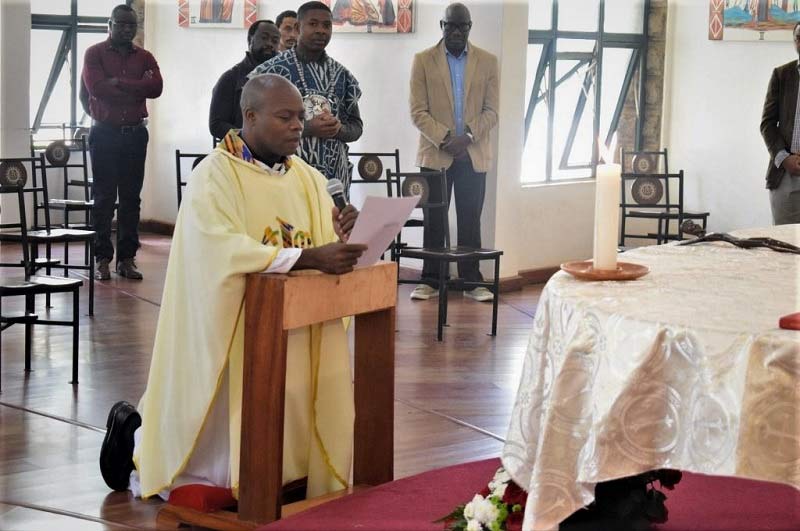
Select Payment Method
Pay by bank transfer
If you wish to make a donation by direct bank transfer please contact Fr Paul Hamill SJ treasurer@jesuits.africa. Fr Paul will get in touch with you about the best method of transfer for you and share account details with you. Donations can be one-off gifts or of any frequency; for example, you might wish to become a regular monthly donor of small amounts; that sort of reliable income can allow for very welcome forward planning in the development of the Society’s works in Africa and Madagascar.
Often it is easier to send a donation to an office within your own country and Fr Paul can advise on how that might be done. In some countries this kind of giving can also be recognised for tax relief and the necessary receipts will be issued.




